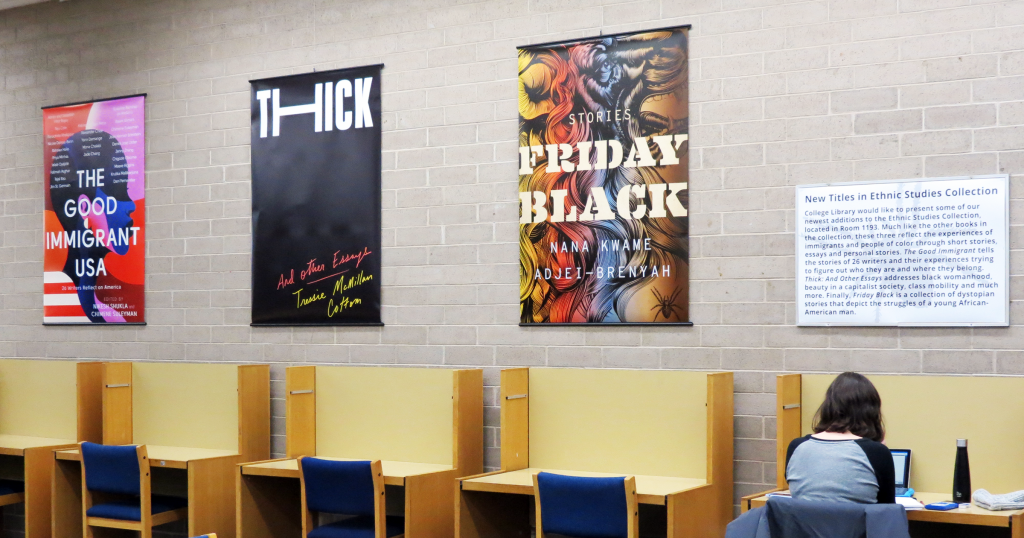Last Friday, the Minnesota Department of Education (MDE) released the second draft of the revised Minnesota K-12 Academic Standards in Social Studies. The latest draft adds a new, fifth “strand” of standards dedicated to Ethnic Studies.
As a mother of Minnesota students and policy director at Education Evolving, I serve on the social studies standards review committee along with 35 other Minnesotans from a diverse collection of perspectives and backgrounds. In fact, this is the most diverse group of members in committee history.
For the last 12 months we have pushed for the social studies standards to be inclusive of more lenses, narratives, and histories — and honest about both the achievements and atrocities that mark our collective story. The standards as drafted mark laudable progress in that direction.
Ethnic Studies gets its own strand
The social studies standards are currently organized into four strands: History, Economics, Geography, and Government. The addition of Ethnic Studies as a fifth strand signals the commitment by the review committee and at MDE to ensure academic standards expand students’ understanding of the story of this country.
Ethnic Studies is the rigorous, interdisciplinary, and comparative study of the central role that ethnicity, race, and racism play in the construction of United States history, culture, and society.
As I told Minnpost last week, Ethnic Studies promotes unity and cross-cultural understanding by teaching about North American values of democracy, freedom, and equality through the historical struggles of one nation to achieve “liberty and justice for all” as children recite daily in the U.S. Pledge of Allegiance at many schools.
The Ethnic Studies standards would require that students:
- Use historical methods and sources, inclusive of ethnic and Indigenous studies methods and sources, to understand and reflect upon the roots of contemporary social systems and environmental systems of oppressions and apply lessons from the past to eliminate injustice and work toward an equitable future.
- Develop an understanding of the ways power and language construct the social identities of race, geography, ethnicity, gender etc. Apply these understandings to one’s own social identities to other groups living in Minnesota, especially those whose stories and histories have been marginalized, erased or ignored.
- Describe how individuals and communities have fought for freedom and liberation against systemic and coordinated exercises of power locally and globally; identify strategies or times that have resulted in lasting change; and organize with others to engage in activities that could further the rights and dignity of all.
The standards in this strand, along with updates to the full set of standards, are critical to moving away from a Eurocentric lens on social studies toward students applying their own personal lens. To see themselves and their peers reflected in that lens. And to focus that lens on meaningful, relevant, deeper learning.
Criticisms sure to persist
Controversy surrounding the revised standards have already dovetailed with the national conversation on critical race theory. Ethnic Studies and critical race theory are not synonymous. But we expect arguments against either to be the same.
Critics argued that the first draft paints America’s legacy in too harsh a light — that the standards teach kids what to think, not how to think. At the same time, they complain that the standards fail to espouse “American exceptionalism” or include the Pledge of Allegiance (the pledge is included in the latest draft).
As we wrote in February, we take a different view: Frank historical context doesn’t squelch critical thinking but enhances it. The draft standards do not proscribe love of country but demand a different kind of patriotism: enduring and earned. Not blind allegiance to a national mythology, but active participation in the democratic process and reverence for the promise of equal justice under law.
What else is in the second draft?
This draft includes a complete set of benchmarks — detailed grade-level or grade-banded knowledge and skills within individual standards — which weren’t part of the first draft.
For example, one standard on American laws and institutions includes benchmarks for early elementary students to demonstrate civic skills in the classroom, fifth graders to identify the three branches of the federal government, and high schoolers to analyze the interplay between local, state, tribal, and federal governments.
Notably, this draft also strengthens a number of standards and benchmarks language around Indigenous studies, and is more consistent with the updated English language arts (ELA) standards, revised just last year.
The draft also includes updated language around technology and information literacy.
What’s missing from the draft?
Despite the huge step of adding an Ethnic Studies strand, our struggle to create a strong and inclusive set of standards continues. When the committee reviewed the public comments from the first draft, they worked to reflect that feedback in the standards, benchmarks, and examples that clarify the meaning of benchmarks or indicate the level of student understanding.
MDE announced that they would not include those examples for public review and comment in the second draft, despite protests from the committee. MDE also combined anchor standards from the Ethnic Studies and History strands, dropped an Ethnic Studies anchor standard, and removed a number of benchmarks that were developed by the Ethnic Studies workgroup on the committee.
What’s next?
A public comment period is open until 4 p.m. on Monday, August 16. Until then, Minnesotans can provide feedback on any aspect of the draft standards via a public comment survey administered by MDE, or email comments to mde.academic-standards@state.mn.us. For more information about the standards, MDE has posted a Q&A on their website.
We encourage Minnesota stakeholders to take this opportunity to commend MDE and the standards review committee for their ongoing efforts to establish social studies standards that are inclusive of more lenses and narratives — so that all Minnesota students learn a fuller, more holistic accounting of our history.
The final draft of standards is expected to be completed this fall.
If you want to connect with me about the standards, my inbox is open: danyika@educationevolving.org.
